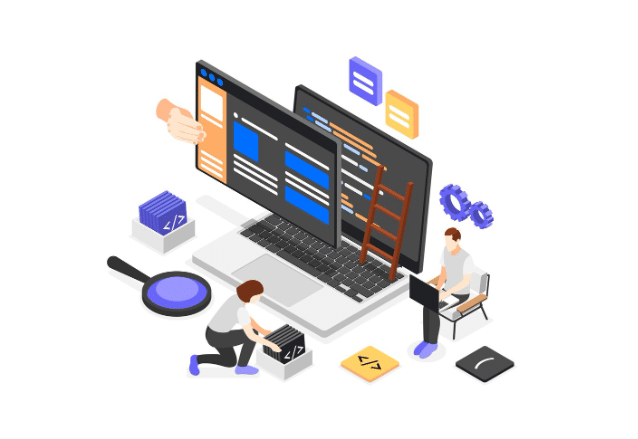
One area of business that continuously evolves with every technological leap is quality control—and for good reason. Over the years, quality control in the consumer-packaged goods (CPG) industry has progressed from basic inspection methods to statistical process control, and now to the integration of artificial intelligence (AI). Each advancement has brought greater precision and sophistication.
Today, we’re entering a new era with Agentic AI in CPG, a revolutionary technology that goes beyond conventional automation. It doesn’t just analyze data; it autonomously makes decisions, adapts to changing conditions, and optimizes production parameters—all without human intervention. This represents a quantum leap in how we define and maintain product quality. As companies explore the full potential of agentic AI in CPG, they are poised to unlock new efficiencies and redefine quality assurance standards across the industry.
Defining Agentic AI: Beyond Traditional Automation
Let’s start with the basics: Agentic AI isn’t just another tool for automating repetitive tasks (we’ve already got bots and RPA for that).
What sets Agentic AI apart is its ability to think, adapt, and act autonomously. It fundamentally transforms quality management processes in three key ways:
- Autonomous Decision-Making: Unlike traditional AI systems that flag anomalies for human intervention, agentic systems can take and execute corrective actions independently. In CPG manufacturing, this translates to real-time process adjustments.
For example, when an agent detects viscosity drifting outside optimal parameters in a food production line, it autonomously modifies heating elements and ingredient flow rates without waiting for operator approval, maintaining consistent mouthfeel and texture across batches.
- Predictive Intelligence: Agentic systems leverage complex pattern recognition to anticipate quality deviations before the arise or happen. An anomaly detection agent, for instance, can detect subtle changes in dissolved oxygen levels that would eventually affect flavor stability, adjusting nitrogen blanket intensity hours before conventional sensors would register an issue, thereby preventing entire production runs from developing off-notes during shelf life.
- Learning and Adaptation: This is where Agentic AI truly shines—it learns from experience. Imagine a confectionery production line where ambient humidity affects chocolate crystallization rates. The system doesn’t just fix the current batch; it incorporates this knowledge into its decision-making framework to optimize future tempering processes across seasonal variations, ensuring consistent snap and sheen every time.
Core Applications Reshaping Quality Standards
Agentic AI is already reshaping quality control in the CPG industry through several transformative applications:
Adaptive Formulation Management: Agents dynamically adjust formulation parameters to accommodate raw material variability. When detecting changes in content of inputs, the system modifies parameters and processing conditions to maintain consistent texture profiles in production, despite varying composition throughout the year.
- Predictive Maintenance Based on Quality Signals: Before mechanical issues come up as visible defects, subtle quality variations serve as early indicators. An agent monitoring micro-variations in fill weights across multiple packaging lines can identify bearing wear patterns in specific part of the machine, scheduling selective maintenance during planned downtime rather than allowing incremental degradation to affect package integrity.
- Cross-Facility Standardization: Agentic systems can identify and suggest or implement (depends on how autonomous you want your decision making to be) best practices across disparate manufacturing locations.
By analysing process variables across facilities producing identical chips, the agent identifies optimal curves from the highest-performing facility and adapts them to account for equipment differences at other locations, ensuring process standardization and development system-wide.
- Dynamic Quality Thresholds: Rather than applying static quality parameters, agents establish adaptive thresholds that maintain consumer-relevant attributes while accommodating processing realities. In beverage production, carbonation levels are dynamically adjusted based on filling temperatures and ambient pressure conditions, ensuring consistent mouthfeel despite atmospheric variations across production runs.
Impact on Traditional Quality Metrics
While conventional quality indicators remain valuable, agentic AI introduces sophisticated metrics that offer deeper insights into manufacturing excellence:
- Predictive Quality Index (PQI): This forward-looking measure quantifies the probability of quality deviations in upcoming production cycles based on multivariate analysis of current process states. A declining PQI in snack food production might prompt intervention hours before sensory properties would be affected, maintaining consistent crunch and flavor profiles.
- Dynamic Optimization Score (DOS): This metric evaluates how effectively the agent maintains critical quality attributes while navigating variable production conditions. A high DOS indicates that the system successfully preserved mouthfeel consistency in ice cream despite fluctuations in cream fat content and ambient temperature throughout production runs.
- Cross-facility Standardization Rate (CSR): This measurement tracks quality homogeneity across manufacturing locations, revealing how effectively the agent has harmonized production outcomes despite equipment variability. Rising CSR values demonstrate successful knowledge transfer of optimal processing windows for complex products like multi-textured confections across geographically dispersed manufacturing sites.
Implementation Challenges and Solutions
Realizing agentic AI’s potential in quality management requires addressing several critical challenges:
Data Quality and Standardization: Effective agent performance depends on consistent, high-fidelity data across all production aspects. Implementing standardized data collection protocols and integrating legacy systems through modern IoT interfaces ensures the agent receives reliable inputs for decision-making processes.
Change Management: Transitioning from operator-led quality control to agent-managed systems represents a significant cultural shift. Implementing phased deployments where the agent initially provides recommendations before assuming autonomous control builds trust and facilitates organizational adaptation.
AI Strategy Development: Rather than isolated implementations, successful agentic deployment requires comprehensive strategy aligning quality objectives with business outcomes. Establishing clear performance metrics and governance frameworks ensures the agent’s decisions remain aligned with brand quality promises and regulatory requirements.
The First Step
Agentic AI represents a quantum leap in CPG quality management, transforming static control processes into dynamic, self-optimizing systems that anticipate issues before they manifest. Polestar Analytics’ expertise in implementing these advanced systems enables CPG manufacturers to transcend traditional quality limitations, achieving unprecedented consistency despite variable inputs and processing conditions.
By leveraging Agentic AI in CPG, manufacturers can navigate the technical and organizational challenges of this transition, realizing the transformative potential of agentic AI in establishing new benchmarks for product excellence.

Top 10 IT Certifications That Actually Boost Your Salary in 2026

Amazon Ads vs. Google Ads: Which Platform Drives Better eCommerce Sales?

Where to Buy a Passport Online for Uninterrupted Global Travel


